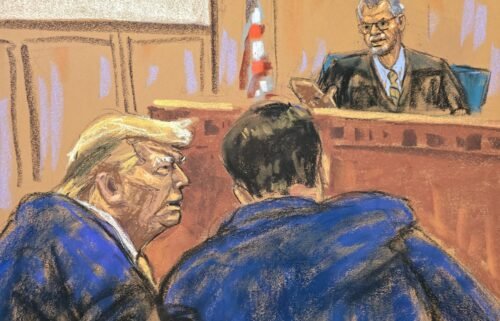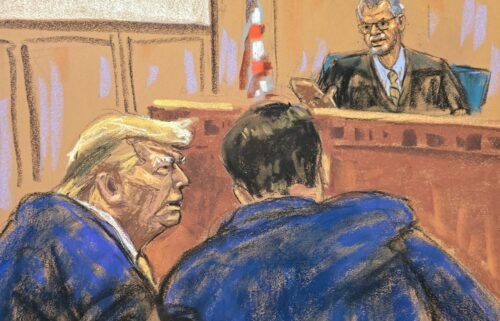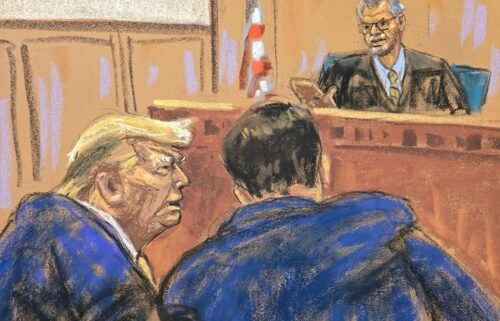The 3 defenses of Donald Trump
Former President Donald Trump’s lawyers have explained how will they defend him in his second impeachment trial against the charge that he incited the violent insurrection at the Capitol on January 6.
They make three arguments: that he cannot be tried because he is longer president; that his statements preceding the riot are protected by the First Amendment and, finally, that he truly believes the election was stolen from him.
The first argument lacks merit. Constitutional scholars generally agree that a former president can be tried by the Senate after leaving office.
The 1876 Senate trial of War Secretary William Worth Belknap, who resigned but then was impeached and tried, provides support for this. Moreover, the Senate has voted to allow former executive officials to be tried for impeachment, first for Belknap and then recently for Trump, by a 55-45 vote.
These votes should carry enormous weight, as the Constitution grants the Senate “the sole Power to try all Impeachments.”
Their next argument is that Trump’s fiery statements to the crowd — “If you don’t fight like hell, you’re not going to have a country anymore” — are protected First Amendment speech. The lawyers also allege that he was referring to “the need to fight for election security in general” when he said this.
The seminal case, around which Trump has tailored his defense, is the 1969 Supreme Court decision in Brandenburg v. Ohio. There, the court ruled that political speech is not protected if it is “directed at inciting or producing imminent lawless action” and “likely to incite or produce such action.” The question thus becomes whether Trump intended to incite imminent unlawful conduct, and whether his words were likely to do so.
There’s a lot of evidence that Trump’s words were likely to incite the crowd to commit an unlawful action immediately. We heard Trump, at his rally just before the siege, tell his supporters “to fight like hell.” We heard him say, “we will soon be marching over to the Capitol building” to “peacefully and patriotically” be heard. And we watched as the mob then breached the barricades, stormed the building and temporarily stopped electoral votes from being counted.
Five people died at the Capitol that day, including Capitol Police Officer Brian Sicknick, and dozens of rioters have been charged with federal and local crimes. While Trump may now claim that he was talking only about future election security, many of the rioters tell a different story. One man told the FBI that he went to the Capitol in response to the President’s request that all “patriots” come to DC.
Given these facts, the only real question for the Senate is whether Trump intended to incite the insurrection. In his brief, Trump attempts to limit the scope of impeachment to his statement, “If you don’t fight like hell, you’re not going to have a country anymore.”
This statement shows some of Trump’s intent; we don’t have to guess what he was thinking, because he told his supporters to “fight,” which they did. But the Senate has other ways to determine Trump’s state of mind. House impeachment managers plan to introduce evidence that Trump’s rally speech was the culmination of a lengthy effort to overturn the 2020 election and to stop Congress from certifying the election.
The evidence will likely include Trump’s tweets, his involvement in the so-called “stop the steal” campaign, his request in a phone call later made public that the Georgia Secretary of State “find” him votes, and all of his statements at the rally. Beyond that, Senators should carefully scrutinize Trump’s argument that his real concern was election security. Trump’s own words contradict this, and it defies common sense to believe that Trump rallied his supporters in the very location and on the very day that the 2020 votes were to be certified, just to discuss security for the next major federal election. In 2022.
For his third and most troubling argument, Trump has doubled down on his “big lie” that the 2020 election was stolen. Trump’s lawyers argue, in convoluted language, that his statements about fraud in the 2020 election were true: “Insufficient evidence exists upon which a reasonable jurist could conclude that the 45th president’s statements were accurate or not, and he therefore denies they were false.” They further claim — without presenting any evidence – that the election results were “suspect” because of Covid-related state election changes.
In other words, Trump is sticking to the “big lie.” It is that lie, and the fanning of the flames of anger over it, that led to the attack on the Capitol. As law professor Steve Vladeck has noted, this defense amounts to Trump claiming that his conduct was “justified” because he believes it to be true.
But believing his words to be true is not a defense. If anything, it is an admission of guilt. It provides his motive for wanting to incite the crowd. Nor is it clear that Trump has any evidence to support his unproven claims. He rejected a request to testify in the Senate and his legal teams have never proven fraud in court. Indeed, they lost 61 of the 62 lawsuits they brought. Many of those cases threw out the very arguments made by Trump here.
Trump’s defenses have substantial legal and factual shortcomings. But that does not mean he should be barred from offering them at trial. His right to a defense is a core principle of our criminal justice system, written into our founding documents. Every day, in courtrooms across the country, individuals mount defenses with major legal and factual shortcomings. Typically, though, problematic defenses fail when examined by an impartial judge and jury. That will not happen here. Trump’s defenses will not go before an impartial jury; they will be presented to the United States Senate.
The Senate jurors will take an oath to consider Trump’s defenses “without prejudice or sympathy.” Senators can honor this oath by following the example of their jury-duty-serving constituents and considering Trump’s arguments with basic common sense and reasonableness. For the sake of the America people, and our democratic system of government, we should all hope that they do.




